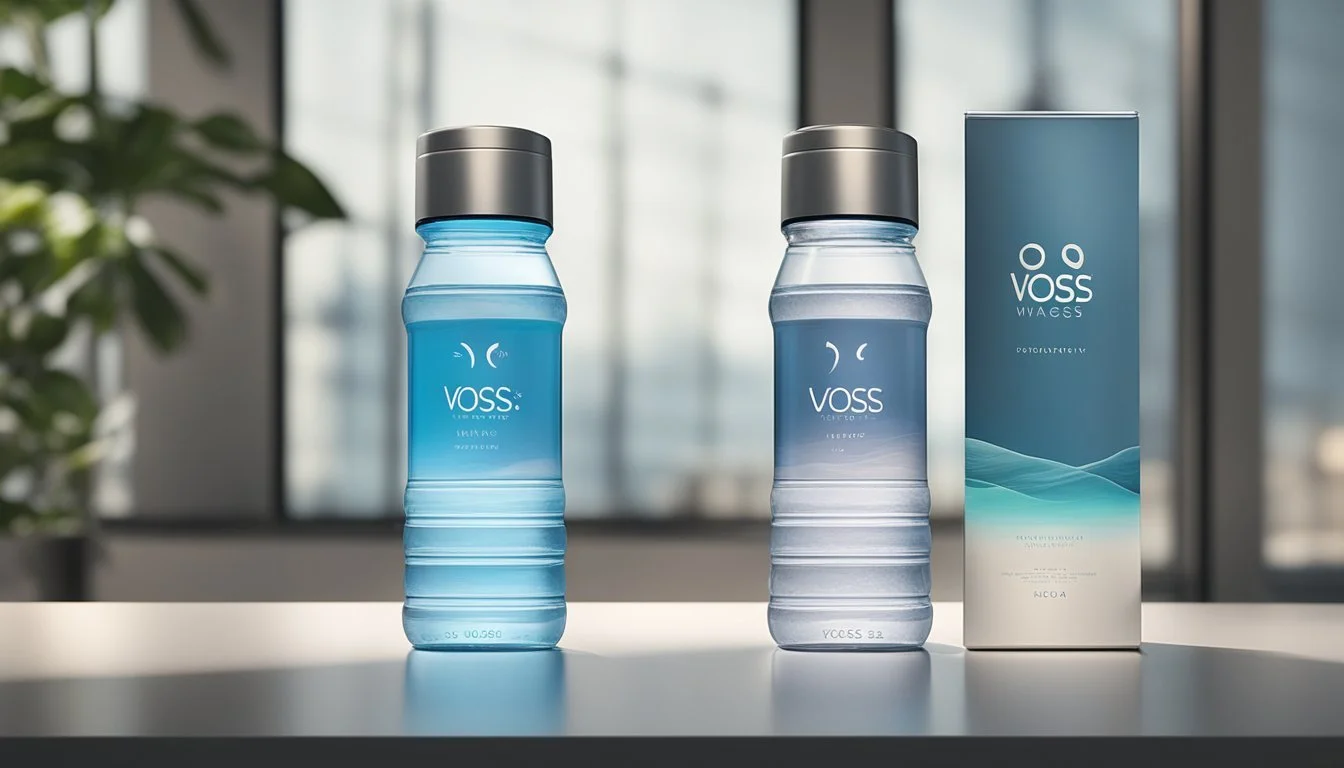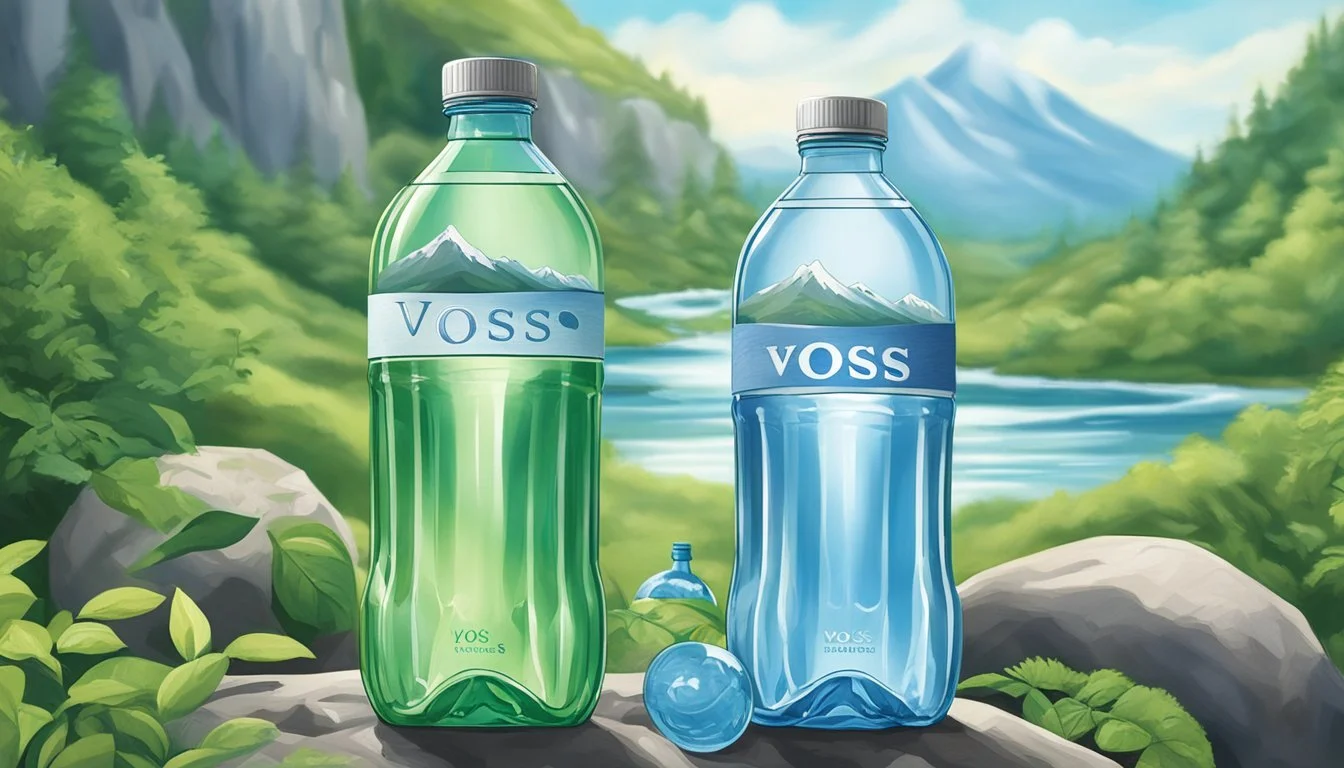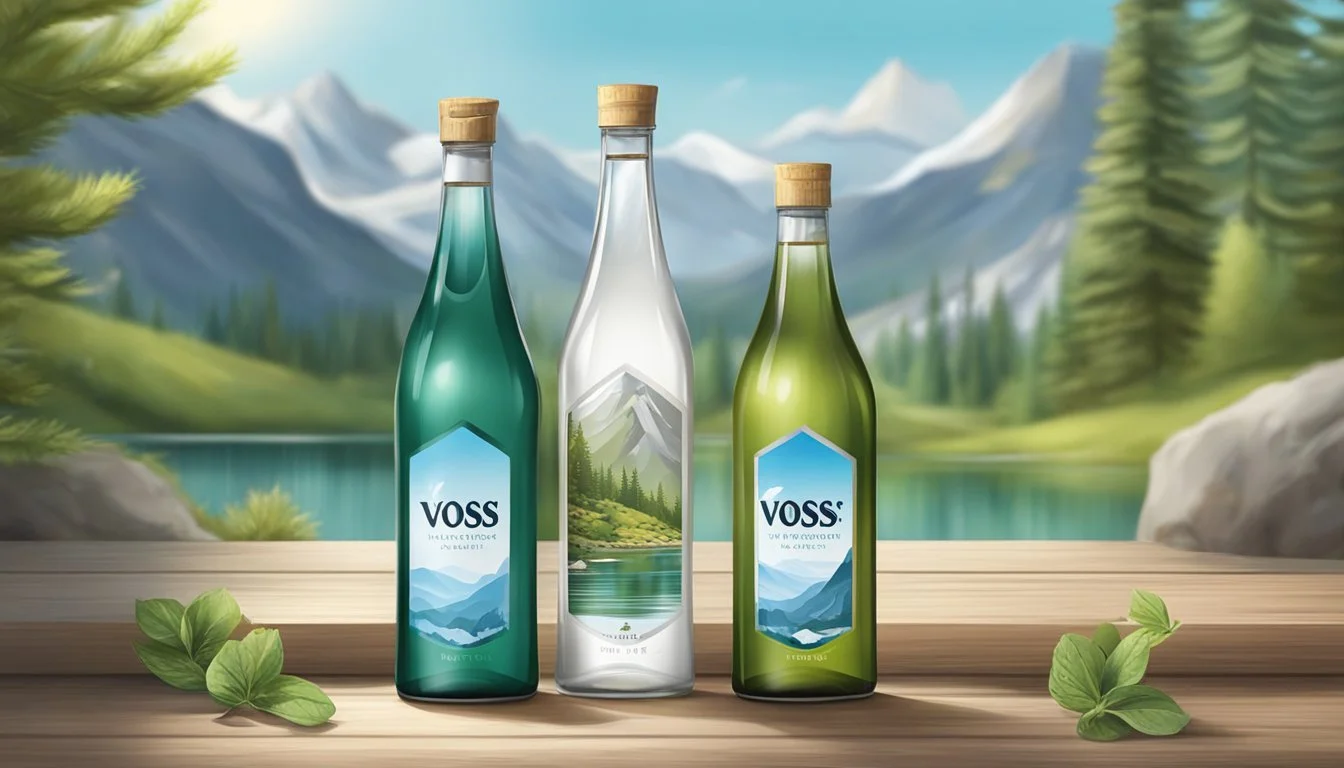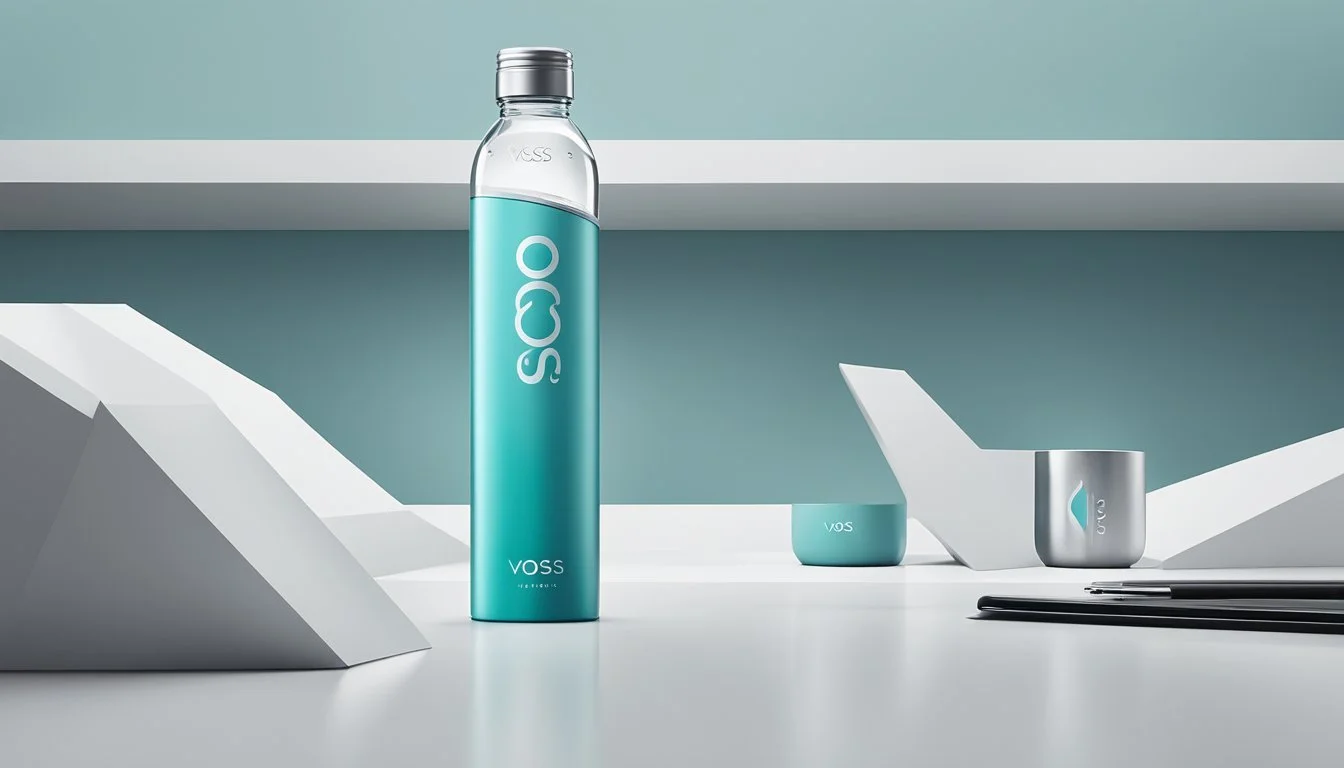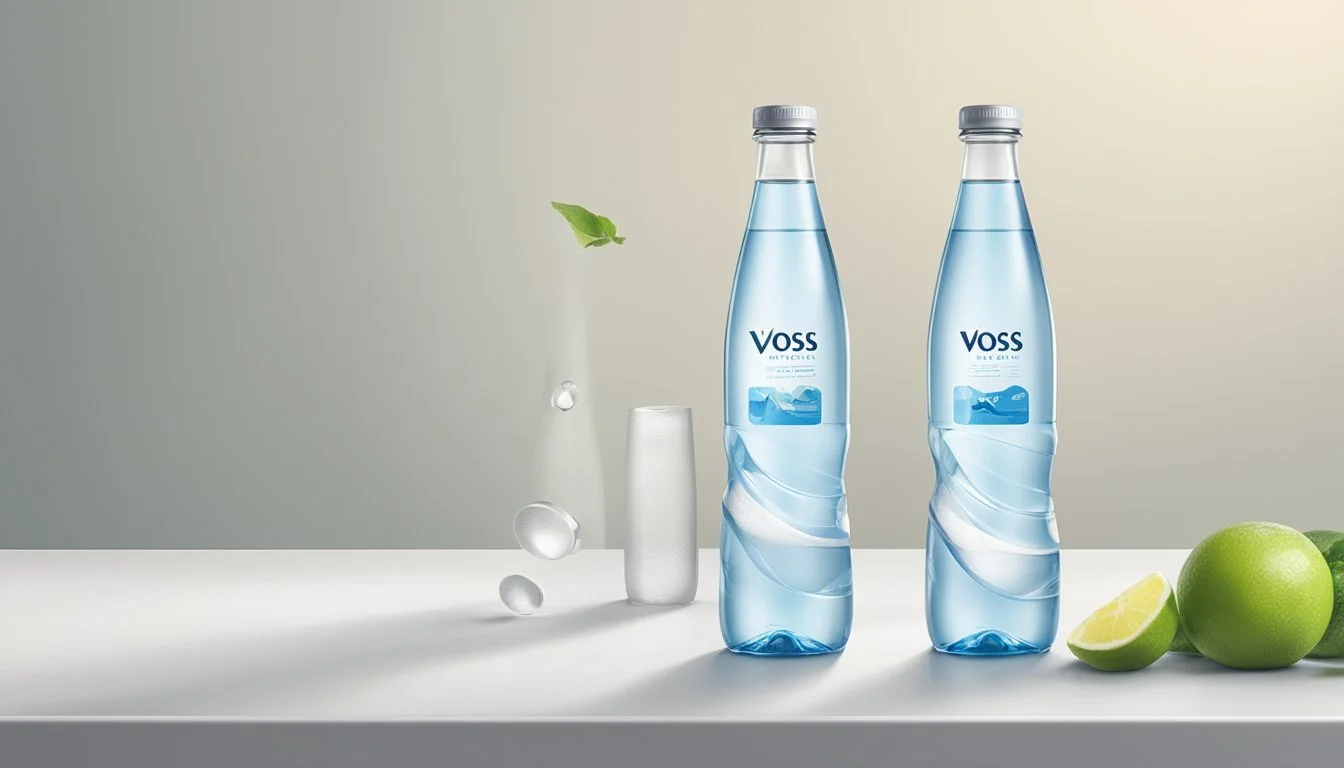Ethos vs. Voss
A Comparative Analysis of Bottled Water Brands
When it comes to bottled water, the market is flooded with a variety of brands that cater to different tastes and preferences. Two brands that often spark debate amongst consumers are Ethos and Voss. These brands are touted for their quality and distinct taste, which is derived from their unique sources. Ethos Water, a Starbucks affiliate, contributes to charitable causes, providing a portion of its profits to support water, sanitation, and hygiene education programs in water-stressed countries. On the other hand, Voss boasts a Norwegian origin with its water extracted from an artesian source in the untouched wilderness of Norway.
The comparison between Ethos and Voss typically revolves around factors such as taste, packaging, environmental impact, and price point. Ethos, packaged in a simple yet elegant design, is often recognized for its commitment to social responsibility. Voss, meanwhile, stands out with its cylindrical glass bottle that exudes luxury and is often found in high-end hotels and restaurants. While both brands promise purity and a clean taste, discerning consumers often have strong preferences based on their perceptions of value and quality of the product.
In the quest to determine which bottled water is superior, it is essential to look beyond the surface attributes and consider the empirical qualities of the water such as mineral content, pH balance, and the overall processing methods. Both Ethos and Voss have made claims about the health benefits and superior taste of their water, which are influenced by the sources and bottling processes. In examining Ethos versus Voss, it is crucial to explore the extent to which these claims hold up to scrutiny and whether they justify the price premium that these brands often command.
Overview of Bottled Water
Bottled water comes in various brands, each with unique sources and marketing propositions. Consumers often select bottled water based on factors like taste, purity, mineral content, and brand reputation. The majority of bottled water is sold in plastic bottles, although some brands opt for glass containers, which can affect both the taste and the price point.
Types of Bottled Water:
Spring Water: Sourced from natural springs.
Mineral Water: Contains natural minerals and trace elements.
Purified Water: Treated to remove chemicals and contaminants.
Artisanal Water: Marketed as being from a pristine environment.
Leading Brands:
Voss: Known for its sleek glass bottle and artesian source in Norway.
Ethos: Marketed with a charitable angle, promising to help children get clean water.
Nestlé Pure Life: Criticized for being average despite the brand's global presence.
Arrowhead: Sources from mountain springs but considered unremarkable in taste.
Considerations:
When evaluating bottled water, one assesses the taste, which can be influenced by the mineral content and the packaging. The environmental impact is crucial, as the production and disposal of bottles are significant sustainability concerns. The price also varies widely, with premium brands often commanding higher prices.
Understanding Ethos and Voss
When discussing Ethos and Voss bottled water brands, one is examining a tale of two distinct philosophies: Ethos's philanthropic mission paired with its commercial success through Starbucks, and Voss's embodiment of luxury and its Norwegian origins.
Ethos Water: Brand Profile
Ethos Water began as a social enterprise aimed at helping children get access to clean water. With every purchase of an Ethos bottled water, a portion of the profit is contributed to water-related humanitarian projects. Ethos Water was acquired by Starbucks in 2005, which aided in magnifying its reach and impact through the coffee giant's extensive distribution network. The brand's commitment to charity is a cornerstone of their identity, aligning with consumers' growing preference for socially responsible companies.
Founding Year: 2001
Parent Company: Starbucks
Philanthropic Commitment: A percentage of profits goes to water projects
Key Fact: Acquired by Starbucks, enhancing distribution and impact
Voss Water: Brand Profile
Voss Water is recognized globally as a premium bottled water brand. Its water is sourced from Norway and is known for both its purity and its sleek, minimalist bottle design, often made of glass to enhance the sense of luxury. Voss has positioned itself as a lifestyle brand, associating its products with high-end restaurants, hotels, and nightclubs. The brand has become synonymous with status and premium quality.
Origin: Norway
Bottle Design: Sleek, often glass bottles
Perceived Quality: Often associated with luxury and exclusivity
Market Position: Positioned as a high-end lifestyle brand
Source and Purification Processes
The source of bottled water and its purification processes determine its quality and taste. Each brand, such as Ethos and Voss, has distinct methods and sources, which can affect the presence of minerals and electrolytes in the final product.
Ethos Water Source and Purification
Ethos Water sources its product from public water systems, commonly known as filtered tap water. The company employs a comprehensive purification process that includes methods such as reverse osmosis, ultraviolet light, and ozone treatment. The reverse osmosis process effectively removes impurities and contaminates. Post purification, Ethos Water is enhanced with a proprietary blend of minerals and electrolytes to ensure a consistent taste.
Voss Water Source and Purification
On the other hand, Voss Water originates from an artesian aquifer in Norway, protected from pollutants by layers of rock and sand. The aquifer is naturally replenished, and Voss touts that the water is unprocessed, retaining its natural characteristics. However, to comply with international standards, Voss water goes through an intricate filtration and purification process that may include ultraviolet light treatment among other techniques, ensuring the water is both purified and free from contaminants while keeping a balance of naturally occurring minerals.
Health and Environmental Impact
Choosing between Ethos and Voss bottled waters involves consideration of their mineral content and their respective environmental initiatives. Consumers often weigh the health benefits of the minerals and electrolytes contained within against the sustainability efforts of the brand.
Minerals and Electrolytes in Ethos and Voss
Ethos Water, a brand owned by Starbucks, is typically purified water that is enhanced with minerals for taste. It commonly includes a balance of calcium, magnesium, sodium, and potassium — all essential electrolytes that aid in hydration and maintaining body functions.
On the other hand, Voss Water, sourced from Norway, boasts naturally occurring minerals from its aquifer origins. Its mineral profile is characterized by low sodium content and enriched with calcium and magnesium, providing a crisp and fresh taste. The unique electrolyte composition of Voss can support proper hydration and contribute to the drinker's dietary intake of these minerals.
Sustainability Initiatives
When it comes to sustainability, both Ethos and Voss present efforts to address environmental concerns. Ethos prides itself on its commitment to humanitarian causes, earmarking portions of their profits to support water accessibility across the globe. While their contribution to social causes is commendable, information on their specific initiatives regarding eco-friendly packaging or recycling programs is not as prominently featured.
Voss, however, has taken clear steps toward sustainability. The company offers its products in BPA-free bottles and actively promotes its recycling ethos. Furthermore, Voss has an established reputation for sourcing water from bio-diverse forests that are sustainably managed, thus minimizing their ecological footprint and protecting the ecosystems from which they source their water.
Both brands face the broader issues associated with bottled water, such as the environmental impact of production and the challenge of providing a sustainable alternative to the convenience of bottled water. Consumers who prioritize environmental sustainability might consider the lifecycle of the bottle and the brand's commitment to maintaining sustainable, bio-diverse ecosystems when making their choice.
Taste and Texture Comparison
When comparing Ethos and Voss bottled waters, the discerning palate may notice differences in taste and texture that stem from their unique sources and mineral content. These factors contribute to the overall experience of hydration.
Analyzing Ethos Water Taste
Ethos Water, a brand often associated with Starbucks, is said to have a clean and straightforward taste that some may attribute to its purity. Close attention to its flavor reveals a neutral pH level that hovers around 7, a standard for pure water, which generally suggests a balance between alkalinity and acidity. This results in a taste that does not lean towards either extreme, giving Ethos Water its characteristically clean and fresh flavor profile. The presence of minerals is minimal, avoiding any strong aftertaste.
Analyzing Voss Water Taste
Voss Water, originating from Norway, is recognized for its distinct taste and smooth texture. It boasts a low mineral content, which contributes to its clean and crisp taste, often described as refreshing by consumers. Notably, the brand highlights its naturally occurring silica content, often associated with a smooth mouthfeel. Additionally, Voss maintains a slightly higher alkalinity compared to other brands, which can give it a subtly sweet and smooth character, differing from waters with a neutral or more acidic pH. Its iconic cylindrical bottle and claims of purity further position Voss as a premium option in the market.
Packaging and Branding
The packaging and branding strategies for Ethos and Voss water are distinct aspects that communicate their unique identities to consumers. Both brands utilize packaging design as a critical component of their market appeal, but they do so with different materials and aesthetics.
Ethos Water Packaging
Ethos Water opts for a simple and clear plastic bottle design with its distinctive blue and white label that contributes to its recognizable branding. Its packaging is designed to appeal to consumers’ sense of social responsibility, as the brand emphasizes its ethical commitment by contributing to global water programs.
Voss Water Packaging
Voss Water sets itself apart with its iconic cylindrical glass bottle that exudes a premium look. The brand’s commitment to unique packaging is evident in the bottle’s minimalist and sleek design, which has become synonymous with luxury. Voss also offers water in high-quality plastic bottles that retain the distinctive Voss silhouette for consumers preferring a more portable option.
Price Point Analysis
When evaluating bottled water brands like Ethos and Voss, it's crucial to consider their price points in relation to each other and the overall market. Ethos Water typically targets a socially-conscious consumer base with a price that reflects its charitable mission, often positioned as a premium product. A portion of its sales is dedicated to funding global humanitarian water programs.
Voss, on the other hand, is marketed as a high-end luxury product. Originating from Norway, Voss is known for its sleek bottle design and artesian sourcing. The brand often commands a higher shelf price compared to Ethos, partly due to its imported status and brand positioning within the luxury market.
Here is a simplified comparison of their retail prices:
Brand Average Retail Price (500 ml) Ethos $1.50 - $2.00 Voss $2.50 - $3.50
These prices may vary based on the retailer, location, and specific product variety (e.g., still, sparkling, flavored). It should be noted that while Voss is available in both still and carbonated options, which may affect its price, the focus here remains on the still versions of each brand for a direct comparison.
Ethos Water's pricing strategy allows consumers to contribute to a social cause while enjoying their product. Voss' pricing, however, is typically reflective of its premium market segment, which may not appeal to consumers seeking utility over luxury. Each brand's price point offers a glimpse into their targeted consumer base and overall branding strategy.
Consumer Perception and Market Presence
Evaluating the distinct positions of Ethos and Voss in the marketplace, this section examines their popularity with consumers and assesses how accessible these brands are in typical retail environments.
Popularity Among Water Drinkers
Ethos water has marketed itself as a brand with a conscience, promising to help children get access to clean water with every bottle sold. Its philanthropic model has gained traction among consumers who value corporate social responsibility. However, the brand does not necessarily top popularity lists when considering the flavor or variety compared to other popular bottled water brands.
In contrast, Voss is often seen as a premium brand due to its sleek bottle design and is perceived as a symbol of luxury, making it popular among those who prefer fancy bottled water. Voss's Norwegian origin and association with pristine natural sources have also positioned it as a desirable choice among discerning water drinkers.
Availability and Accessibility
Ethos:
Availability: Commonly found in Starbucks locations across the globe, which enhances its visibility and convenience.
Retail Presence: Limited presence in other retail formats, such as supermarkets or convenience stores.
Voss:
Availability: Extensive global distribution, available in a variety of settings from high-end restaurants to the shelves of gourmet grocery stores.
Retail Presence: Strong presence in select upscale markets, but less common in everyday convenience stores, potentially affecting its accessibility to a broader consumer base.
Both brands have utilized their unique marketing strategies to create distinct market presences that resonate with specific consumer bases. Ethos emphasizes social responsibility while Voss capitalizes on its premium image, each with varying degrees of convenience and availability for the average buyer.
Expert Opinions and Reviews
When it comes to bottled water, experts often look at factors such as taste profile, source purity, and brand reputation. This section delves into what specialists in the field have determined when comparing Ethos and Voss waters.
Comparative Studies
Various comparative studies on bottled water brands suggest that the source and treatment of the water are critical factors contributing to overall quality. Ethos Water, which is often associated with Starbucks, prides itself on supporting water access initiatives, although it isn't typically highlighted for its taste or source. Voss, on the other hand, boasts water sourced from Norway's pristine aquifers, often impressing experts with its clean and fresh taste.
Source Quality: Studies indicate that Voss's natural sourcing contributes significantly to its ranking.
Ethos Mission: Ethos Water is recognized more for its charitable contributions than its water source or taste.
Expert Taste Tests
In expert taste tests, sensory analysts scrutinize the flavor, mouthfeel, and aftertaste of the water. Voss tends to receive commendations for its smoothness and minimal processing, which preserves its natural taste.
Voss: Smooth and pure, often receiving positive remarks for retaining its natural flavor profile during the bottling process.
Ethos: While not often criticized, it does not stand out in expert taste tests where the focus is on the sensory experience.
These focused tastings highlight that while both brands may serve the basic need for hydration, Voss is typically preferred for its taste and purity derived from its source.
Overall Recommendations
When choosing between Ethos and Voss bottled waters, consumers have distinct considerations. Ethos Water donates a portion of its proceeds to support water-related humanitarian projects. Its light, clean taste appeals to those valuing social responsibility alongside quality hydration.
Voss, on the other hand, is often regarded for its purity and minimalist packaging design. Originating from an aquifer in Norway, Voss embodies the Nordic tradition of natural quality. Its taste is crisp and is available in both still and sparkling varieties.
For everyday use:
Ethos: Good choice for socially conscious consumers.
Voss: Suitable for those prioritizing taste and brand prestige.
For special occasions or dining out:
Voss is presented in glass bottles with a sleek design, offering an upscale experience.
In terms of environmental impact, consider these points:
Ethos Water's charitable initiative may align with eco-conscious values.
Voss offers glass bottles, which are more frequently recycled compared to plastic.
Pricing can be a deciding factor:
Ethos is generally more affordable, while Voss is priced at a premium.
When selecting a product, it ultimately depends on the individual's preference for taste, price point, and values such as charitable contribution and environmental responsibility. Both brands have carved out their respective niches and are distinguished in their offerings.

